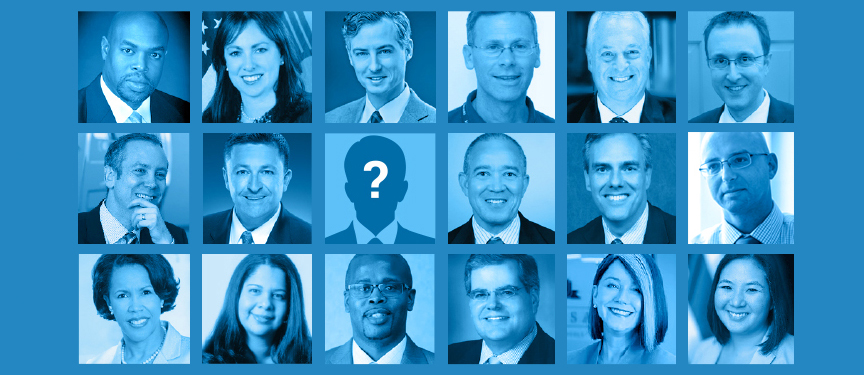
SUBSCRIBE
TO MONTHLY UPDATES
We'll send you information that
will keep you up to date on CFC

Cities need great schools to thrive. If we are going to break the effects of generational poverty and bring high quality learning opportunities to every person on the planet, we have to invest in urban education innovation.
Denver Public Schools (DPS) is committed to offering great schools in every neighborhood to close opportunity gaps. (See feature for more on the DPS portfolio approach.) In partnership with the Ewing Marion Kauffman Foundation, we recently acted as Denver tour guides to a group of educators, parents and community leaders from Kansas City seeking inspiration as a part of the Kansas City Great Schools initiative (#KCGreatSchools). Our tour took us to four schools that represent the range of options for Denver families: a primary school, a middle school and two high schools. Of them, two are district “Innovation Schools” and two are dependent charters, although those distinction doesn’t mean much in Denver as they do in other cities.
Portfolio Approach
The DPS portfolio approach keeps district, innovation and charter schools on a level playing field when it comes to accountability. On the continuum of building-level autonomy, traditional district schools operate under the full district rules and regulations, innovation schools have freedom over people, time and money and charter schools operate under the provisions of their charter. Of the 223 DPS schools, 38 are Innovation Schools (educating 19% of Denver students) and 55 are dependent charters (serving 18%). The Imaginarium, the district’s new school incubator, supports all three types through coaching, professional learning and design thinking processes to inspire education transformation.
We believe in the power of school visits to inspire action. On past trips to Denver we’ve taken groups to Rocky Mountain Prep, Roots Elementary, Grant-Beacon Middle School and Denver School of Science and Technology (DSST). On our most recent trip we added a day at Denver School of Innovation & Sustainable Design (DSISD).
Denver School of Innovation & Sustainable Design
DSISD is an example of an innovation school: a district-managed school with a waiver from certain district policies, state statutes and collective bargaining agreements so teachers and leaders can design and implement innovative practices. DSISD is also supported by Carnegie’s Opportunity by Design High School grant program.
DSISD currently serves a racially and economically diverse group of nearly 100 9th graders, and it will add a new grade level each year until fully serving through grade 12 in the 2018 school year. A strong focus on innovation and design thinking is central to a student experience that is personalized, blended and competency-based.
Innovator Competencies
DSISD adds the arts to their STEM focus. Students write, solve problems and produce artifacts as they explore challenging real world problems.
DSISD’s student competencies include four domains that make up “Innovator Qualities:” academic excellence, lifelong learning and citizenship, innovative thinking and action and transformative leadership.
Self-Directed Learning
Self-directed learning is the vehicle for developing many of the competencies outlined above. DSISD trains students on the “Self-Directed Learning” cycle below.
DSISD students learn that self-directed learners:
Look for challenges, because they know they will grow when they push themselves;
Are persistent when a task is not completely engaging or interesting, because they know that deliberate practice leads to quicker processing;
Shift strategies when necessary; and
Don’t get discouraged by failures but see them as opportunities to learn.
Teachers support the development of these habits by giving students “voice and choice,” coaching students through the learning cycle and offering ongoing support through formal and informal mentoring.
Role of Advising
DSISD is Denver’s first fully competency-based high school. Their competency-based model was developed in partnership with Summit Public Schools’ Basecamp program which makes their innovation Personalized Learning Plan (PLP) and training available to selected schools nationwide.
A daily advisory period including community building activities and a weekly opportunity for each student to check in with their advisor on goals, progress and next steps. In addition to reviewing assignments and assessments, teachers also check in on social-emotional learning with questions like:
What class are you feeling the most success in? What are some things that you are doing to make things go well?
Do you have any concerns? What data in your PLP supports this concern? What resources and personal assets do you have available to you to help address this concern?
When not meeting with the teacher, students use this time for independent or small group work or to complete service learning projects.
A Day in the Life
In addition to the daily Advisory, students have four core classes (ELA, Social Studies, Math and Science) and a Design Thinking Pathways course block. During this block, students take STEM/Engineering. Next year, every student will take Computer Science in partnership with Code.org. As more grades are added, students will select a major in either STEM or Social Entrepreneurship and begin internships. By 12th grade, students will be enrolled half-time or full-time at a community college aligned to their major. The school day ends with a Flex block with students choosing from a variety of extended learning opportunities including coding, world language, sustainable gardening, robotics, poetry, dance and art.
A Path To College & Career
DSISD prioritizes access to college and career “entry points” for its students in multiple ways. This includes:
Advanced Placement (AP) coursework as early as 9th grade;
Credit-bearing college courses taught on-site and at local community college campuses;
The ASCENT Program “Grade 13”;
Denver Public Schools CareerConnect Program; and
Work experiences such as job shadows, professional mentoring and internships.
Evidence of a strong, positive school culture is pervasive. Students who, only one year in, have come to rely on their teachers and leaders as powerful mentors. Teachers feel empowered and engaged in ways they never dreamed possible. A student who said she’d always been “terrified of her principals” at previous schools lead a student dialog with principal Danny Medved to improve the learner experience at DSISD.
Some students ride the bus for over an hour a day to attend DSISD. Some teachers moved across the country for a chance to teach in a school like this.
DSISD will spend another year sharing a district facility with a DSST high school and then will move to another district facility. The principal hopes the new facility will support the promising learning model as well as the current campus.
From the student-centered competency-based model to its emphasis on cultivating teacher talent, DSISD is a powerful example of the type of innovation we need in urban education. For more on DSISD, see their innovation plan or check out this video to learn directly from teachers, students and leaders.